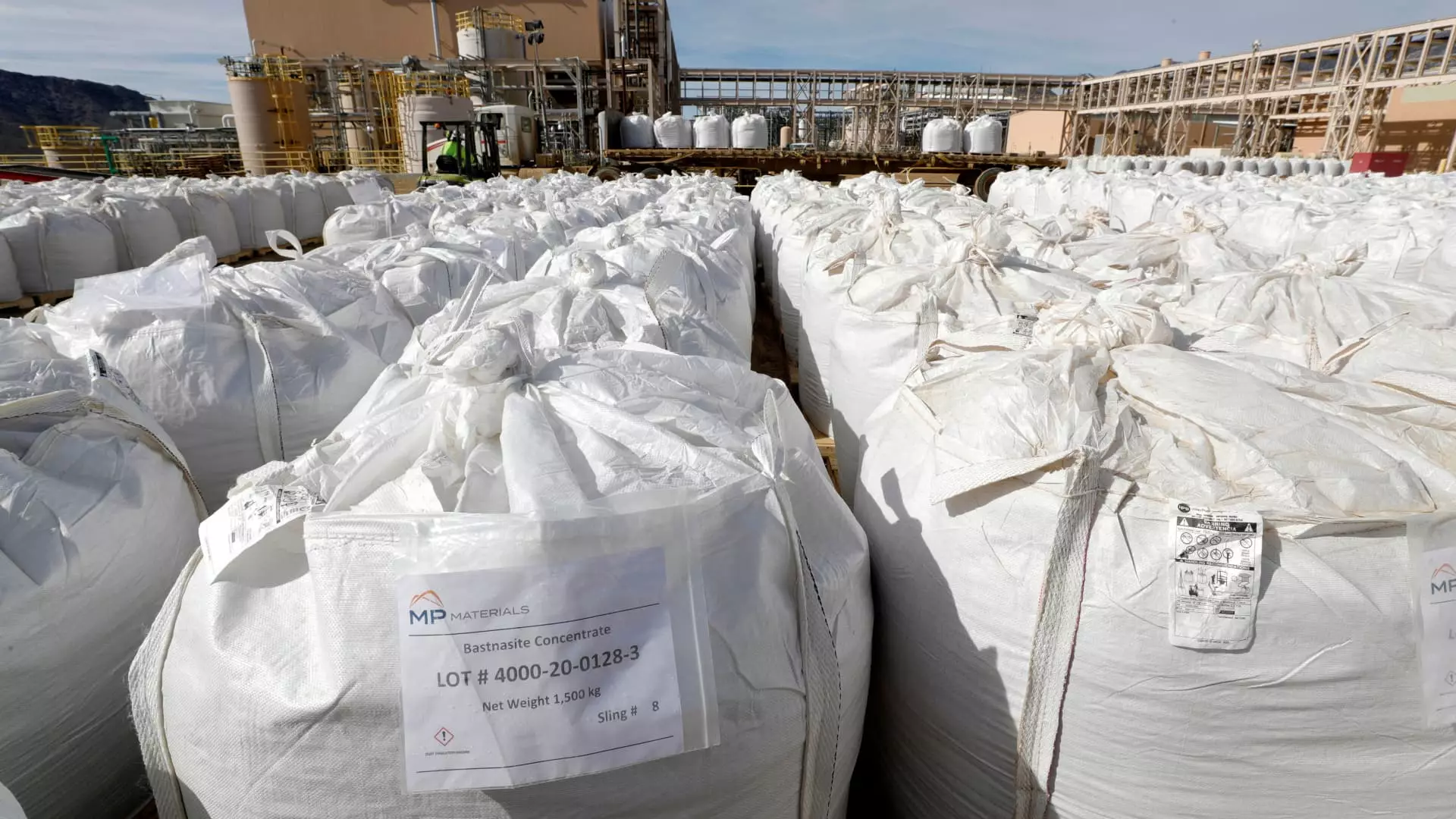In a landscape driven by strategic alliances and geopolitical maneuvers, the stock market in 2025 reveals the brutal truth about how corporate leverage and government influence can dramatically alter the fortunes of companies overnight. The recent meteoric rise of MP Materials by over 47% following a $400 million defense contract underscores a vital but often overlooked fact: in today’s economy, earning power is increasingly tethered to political and military backing. Such moves expose a troubling pattern—companies with deep-pocketed government support are shielded from market forces, creating a distorted playing field where true competitive strength is secondary to political favor.
This dynamic is a clarion call to investors: follow the money. Corporations that secure government contracts or political backing often see their valuations inflated well beyond their intrinsic worth, creating bubble-like conditions ripe for sudden deflation. The government’s role in shaping the economic narrative is undeniable and, frankly, alarming; it blurs the lines between free enterprise and strategic statecraft, undermining the very foundations of capitalist competition.
Market Euphoria: Short-lived Gains vs. Underlying Fragility
While corporations like Delta Air Lines and McDonald’s enjoy soaring share prices driven by favorable earnings results and analyst upgrades, these gains conceal a fragile underpinning. Delta’s 11% rally after raising profit outlooks appears promising, but it raises questions about whether such optimism is sustainable amid uncertain macroeconomic conditions and rising inflationary pressures. Similarly, McDonald’s 2% boost following Goldman Sachs’ upgrade suggests corporations are adept at capitalizing on perception, but it doesn’t address deeper economic vulnerabilities—supply chain issues, labor unrest, or consumer spending fatigue—that could quickly erode these gains.
The euphoria extending to meme stocks like Hertz further underlines an unsettling trend: market enthusiasm is increasingly disconnected from fundamentals. Hertz’s 12% jump, fueled by retail investor fervor, exemplifies a speculative bubble that’s committing the mistake of ignoring intrinsic value in favor of instant gratification. Such behavior fosters volatility and risks a swift correction that can wipe out gains across sectors, creating a climate of reckless optimism that’s ultimately unsustainable.
Global Tensions and Their Market Ripple Effects
Geopolitical tensions remain a potent, if unpredictable, driver of market sentiment. Brazil’s stocks and Embraer faced setbacks following tit-for-tat tariffs between the U.S. and Brazil—a classic illustration of how diplomatic disputes translate swiftly into financial pain. The threat of retaliation not only dampens investor confidence but further entrenches the notion that international disputes are a hidden hand in market volatility. This interconnectedness exposes the fragility of the global economic system, where a single political decision can trigger widespread ripple effects that obliterate years of gains.
The ongoing trade battles undermine the notion of free trade as a driver of growth, revealing a less transparent but more powerful truth: economic prosperity in the modern era is increasingly dictated by strategic posturing. Investors, whether institutional or retail, often overlook this geopolitical chessboard, exposing themselves to unnecessary risks that can materialize suddenly and with devastating severity.
The Illusion of Innovation and the Reality of Market Speculation
Technology and innovation stocks like Mobileye and AMD suggest a different narrative—one of growth fueled by technological breakthroughs. AMD’s 3% rise on a bullish upgrade and Mobileye’s minor dip after a secondary offering reveal the complex dance of optimism and caution that characterizes the tech sector. Yet, beneath this dance lies a troubling realization: much of the market’s enthusiasm is based on speculation rather than substantive innovation. The hype around new AI chips and tech upgrades serves more as smoke and mirrors, inspiring investor confidence even as valuations threaten to detach from reality.
The frustration deepens with companies like Trex and PTC, which experienced positive upgrades amid demand forecasts, but are still vulnerable to broader economic downturns. The core issue remains that many of these companies are riding a wave of short-term optimism that may quickly recede once the broader economic winds shift.
The Disappointing Reality for Consumer Giants
Finally, the sharp decline of Helen of Troy by 23% after disappointing guidance signifies a stark departure from the relentless optimism that characterized previous years. Despite its focus on consumer staples, the company’s forecast miss highlights the fragility of even well-established brands in an environment increasingly driven by consumer austerity and shifting priorities. The disconnect between Wall Street’s expectations and real-world performance underscores a harsh truth: no matter how established or resilient a company appears, it remains vulnerable in an unstable economic climate where short-term issues can undo years of goodwill in a matter of weeks.
The narrative of 2025 is clear: the illusion of stability is just that—an illusion. Behind the bright headlines and soaring stock prices lie fundamental weaknesses and systemic vulnerabilities that threaten to redefine the future of markets as increasingly manipulated and unpredictable.

